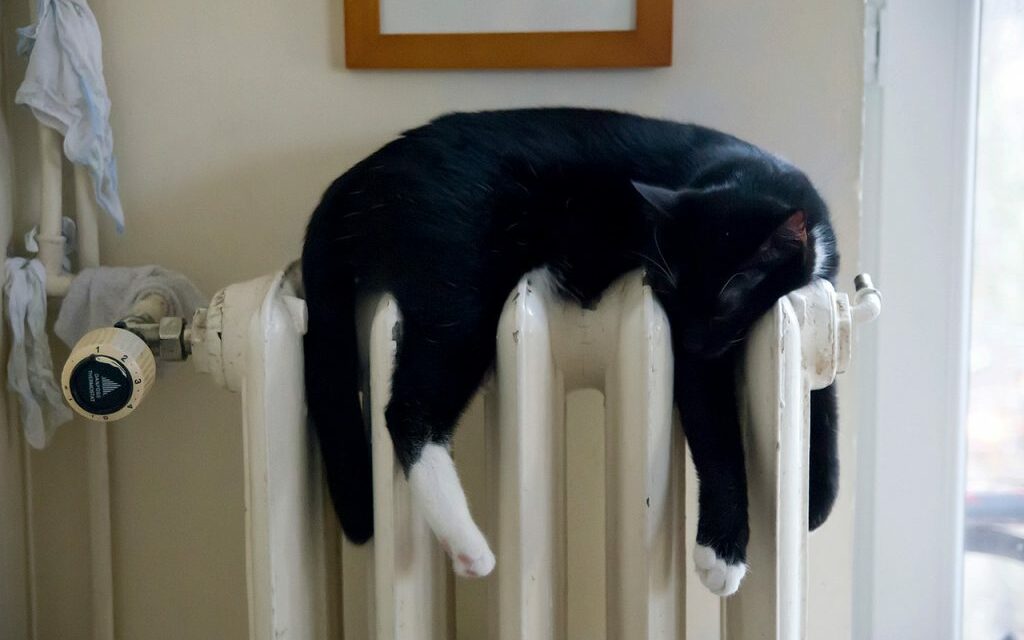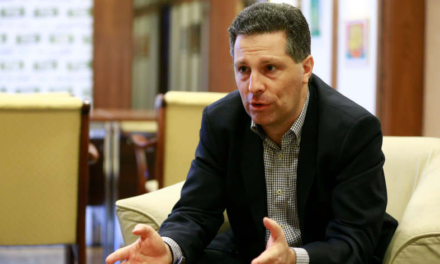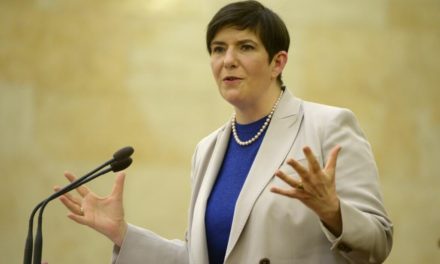Last weekend, the dignitaries of the Green Party gathered for a party congress. In the well-heated and large-scale illuminated International Congress Palace in Bonn, the final days of nuclear energy in Germany were celebrated in a frenzy.
The fact that the country around them is increasingly falling into darkness, industry and commerce are dying, and coal and wood are hardly available if someone wants to put their old tile stove back into operation due to the lack of gas did not dampen their spirit of victory. Why would they have bothered themselves when they had been working on exactly this goal for more than a decade?
Even the so-called extended operation mode of the two remaining nuclear power plants was made impossible by erecting more and more bureaucratic barriers and deciding to basically ban the purchase of new heating elements. Here, Jürgen Trittin, who flirts with terrorism, and agg, hand in hand with the party's serious, young-Maoist party leader, Ricarda Lang, drew the impassable "red border", the crossing of which, according to their promise, will be prevented by all means.
Their Minister of Economy and Climate Affairs, Robert Habeck, was even separately forbidden to ever dare to discuss the further operation of nuclear power plants. But all other forms of energy production, both domestic gas extraction and the use of domestic coal, were forever excluded.
All this was done with hair-raisingly absurd arguments, for example, they claimed that "nuclear energy clogs the electric lines and does not allow eco-energy to pass through", and thus hinders the realization of the energy revolution.
This sentence also characterizes the intellectual level of the congress in general.
But it seems that the principle of effect and counter-effect also applies in politics, because on the Monday after the congress, the Social Democratic Chancellor Olaf Scholz at least partially satisfied the frenzy of the Green Party.
For the first time, the chancellor made a chancellor decision with the "directive authority" guaranteed by the government's rules of procedure: Until April of next year, all three remaining nuclear power plants will continue to operate using the remaining heating elements in extended mode.
The government was not even mentioned in its decision, the chancellery wrote in its letter to the government: "In accordance with paragraph 1 of the government's rules of procedure, I made the following decision: The legal foundations must be created for the Isar 2, Neckarwestheim and Emsland nuclear power plants on April 15, 2023. for its further operation until..."
Scholz made his decision at the last possible minute, not because he was worried about the fate of the country and its citizens, but because he had to fear the disintegration of the ruling coalition after the Green Party Congress.
The smallest party in the coalition, the Free Democratic Party (FDP), would have put its existence at risk after four crushing electoral defeats in 2022 if it turned a blind eye to the nation-damaging decisions of the Green Party Congress.
After entering the coalition, the FDP gave up all its liberal, pro-freedom objectives and, as a servant of the Social Democrats, but especially the Greens, performed only one task: ensuring the parliamentary majority of the two slightly larger parties. As a result, the Free Democrats lost almost their entire voter base in a short period of time and are now on the verge of complete collapse or annihilation. There was a great danger that the cornered party leader Christian Lindner would upset the table and leave the coalition, which would presumably have led to a government crisis and early elections with unpredictable results.
Neither the Social Democrats nor the Greens dared to risk this, since according to opinion polls, the coalition parties would not have a majority for months.
Therefore, there is a lot to be said for the fact that what appears to be the chancellor's brave decision to take power was a pre-arranged trick with the two party leaders, Habeck and Lindner. Interestingly, both of them immediately assured the chancellor of their agreement, although apparently neither of them got what they really wanted: Habeck wanted to permanently and irreversibly end the era of nuclear energy in Germany on December 31, while Lindner wanted to keep the power plants running until 2024, which it would also have meant the installation of new heating elements, but the crucial issue of heating elements remained unmentioned.
From this point of view, the Free Democrat Lindner lost again, but at least he can try to sell his latest retreat as a victory. Which, of course, will not be easy, because the three-month moratorium will only minimally change the catastrophic energy situation. It is particularly problematic that the operators cannot acquire new heating elements, even though a third of them should be replaced with new ones.
Experts are already warning against the use of a "solution" without new elements: an experiment like this has never been carried out on a live energy system, the outcome of which is completely uncertain, said a spokesperson of the Atomic Energy Association.
And it is even uncertain whether this apparent compromise will actually keep the coalition together. The radical-dominated youth organization of the Greens, which forms a transition between the Green Party and partly eco-terrorist NGOs, has already begun to rage. It is still completely uncertain whether Habeck will really stick to the chancellor's decision, because nothing and no one can force him to do so. Scholz's seemingly decisive decision won only three months for his creaking, collapsing coalition.
The German citizens won practically nothing, perhaps only that the blackout, which everyone was dreading, will happen a few months later - in a lucky case.
Featured Image: Pixabay













